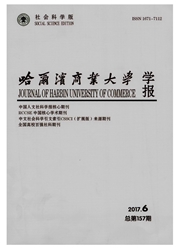

 中文摘要:
中文摘要:
接受美学试图将文学研究的重点转移到读者的接受上,强调读者在作品意义实现中的重要地位。虽然接受美学有深远的哲学渊源,但是它所提出几个论断和核心概念却很值得商榷。总体上来看,接受关学有三个失误:其一,它将对艺术品的欣赏等同于对自在物的欣赏;其二,它认为阅读能够决定意义;其三,它将个别误认为普遍,犯了一个理论决策上的错误。接受美学的“有知识的读者”、“暗隐的读者”和“召唤结构”等概念均指向文本,而与所谓读者的接受关系甚微。因此,接受美学作为一种文学批评理论并没有给我们带来我们所期待的新意。
 英文摘要:
英文摘要:
The Reception Theory attempts to shift the focus of literary study onto the reader, emphasizing the significant role of the reader in the actualizat/on of the meaning of the text. Despite its profound philosophical basis, some of its core concepts and statements lie open to discussion. Generally, the Reception Theory suffers from three misconceptions: first, it confuses the appreciation of a work of art with that of a natural object; second, it considers the making of meaning is in the reading; third, it takes the particular to be the general. Important concepts proposed by the Reception Theory, such as "informed reader," "implied reader" and "response-inviting structure," all refer back to the text, and bear little on the reception by the reader. It would be safe to say that as a critical theory, the Reception Theory fails to present fresh insights as expected.
 同期刊论文项目
同期刊论文项目
 同项目期刊论文
同项目期刊论文
 期刊信息
期刊信息
